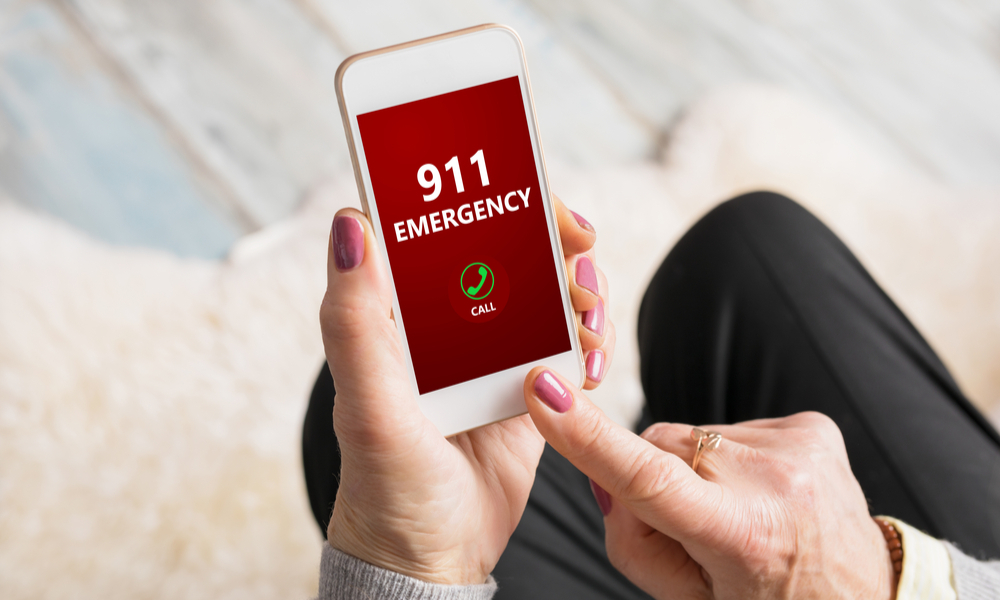In the event of an unexpected injury, illness or any type of emergency while on a trip away from home, you should know where to turn for help…especially when in an unfamiliar country or place! Fair enough, it’s hard to predict that an accident will or will not happen, so before you book flights for your next adventure there are a few emergency tips you should be mindful of.
There are different ways of doing things in every country. For instance, if there’s a car accident, dialing 911 for medical and police attention probably won’t work if you’re outside of the US (some countries use 911, but most do not).
So, to avoid further mayhem, here are some tips to help you know how to deal with an emergency abroad!
Learn How to Call for Help Internationally
“Hello, 911? …HELLO?” Sounds like you’ve dialed the wrong number! In case of an emergency, you don’t want to dial an incorrect number that most definitely won’t direct you to fire, police, or medical assistance. Some countries like Spain use 112, for example, whereas the US uses 911 for emergency services. Other nations around the globe use a variety of completely different numbers. So, depending on where you’re traveling, do some research to know exactly how to get in contact with emergency personnel for assistance. Oh, and before you head out for your trip, add these emergency numbers to your cell phone or write it down and keep it with you at all times!
Extreme Emergency? Contact Your Embassy
Being far away from home during an emergency can make any traveler frantic. If you or someone you’re with is extremely hurt or ill, contact your local embassy to help you (after you’ve already contacted emergency medical, fire or police, of course). The embassy can assist with things like money transfers from your country or transportation to get you home quickly. And if you’re not sure about what to do in a critical situation, contact the embassy anyway to see what they can do for you. Better safe than sorry!
Pack First Aid Kits and Medications
Headaches, an upset stomach, and skin irritations are some common occurrences travelers experience while on vacation. Most are mild and can be cured easily with over-the-counter medications. To prepare for the worst, pack ibuprofen, Band-Aids, skin cream for irritations or sunburn, and any other medications you think will prevent your trip from being ruined. No one wants to have to step out of a resort or cancel an excursion to go find a drugstore or a doctor to get medication for a mild illness.
You may also like: Make Sure These Things Are on Your Survival Gear List
When and Where to Go for Medical Care
During an emergency, you need to think fast. But how do you do that if you’re unfamiliar with the medical centers and hospital locations in the country you’re visiting? Be prepared. Call your hotel or the host of the home you’re staying in for specific information on local medical centers and hospitals. That way, if there is a language barrier you just can’t overcome, you’re ready to go to the right place without asking many questions and struggling to understand directions. Also, don’t leave home without your medical cards and information so that you can receive medical assistance if necessary.
We know, the last thing you want to do on vacation is to go to a hospital in a foreign country. Time is limited when on a trip, so if you only have something as mild as a cold or a bad sunburn you can probably avoid medical assistance. Use your best judgment on whether you should handle a medical issue on your own or go out and seek help from a doctor or healthcare professional.
Contact Your Health Care Provider
Just as you would contact your credit card and cell phone companies to make a note that you will be leaving the country, call your health care provider too. Inquire if your health insurance has an international plan. Some insurance companies offer international medical coverage depending on where you’re visiting. Prior to even booking those cheap international flights, it’s always good to know what you are and aren’t entitled to when in an emergency. Give yourself some peace of mind!
Know of any other tips on how to handle an emergency while abroad? Tell us in the comments below!




